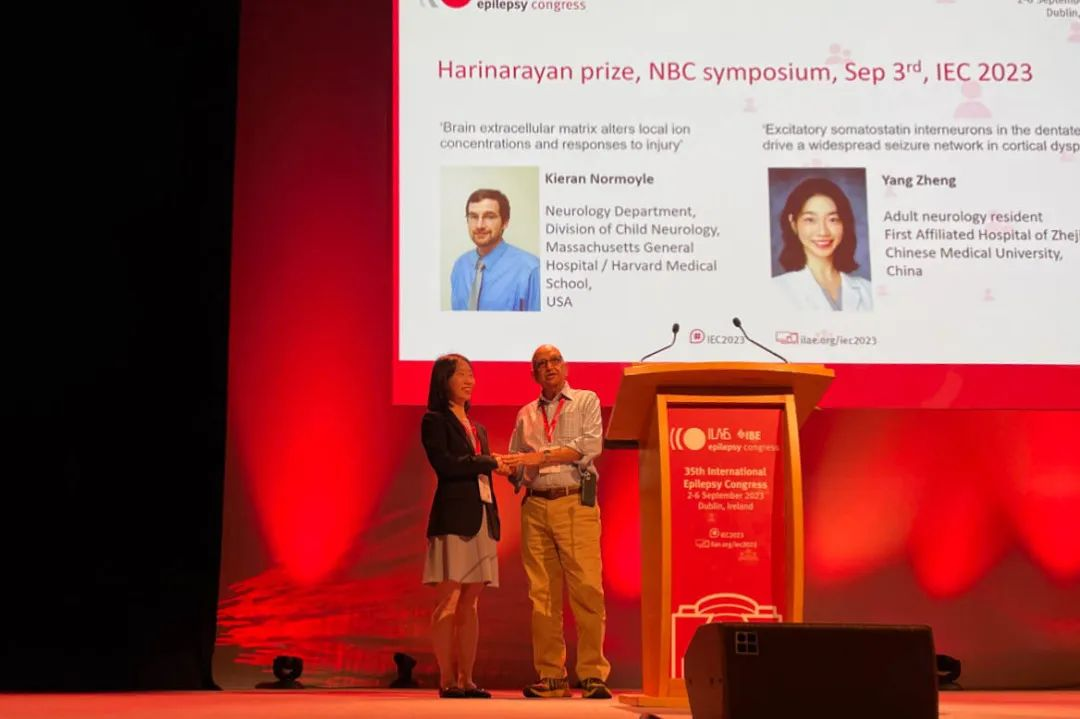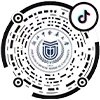Recently, the 35th International Epilepsy Congress (IEC) hosted by the International League Against Epilepsy (ILAE) was held in Dublin, Ireland. At the congress, Dr. Zheng Yang, a neurology resident in the First Affiliated Hospital of Zhejiang Chinese Medical University, was awarded the ILAE Harinarayan Young Scientist Award by Dr. Raman Sankar, Chair of ILAE Commission on Neurobiology and an international expert in neurology.

The IEC, the largest global congress on epilepsy, is held every two years. This year’s congress brought together over 3,000 experts in the field of epilepsy from around the world to discuss clinical and basic research topics related to epilepsy in more than 120 sessions. The Harinarayan Young Neuroscientist Award is awarded every two years by the ILAE Commission on Neurobiology through a worldwide selection process. Two young researchers (PhD or MD graduates within 10 years) are selected for this award each time. From 2015 to 2023, a total of 10 doctors or researchers in the field of epilepsy have received this award globally. It is reported that Zheng Yang is China’s first young scholar to receive this prestigious award.
Zheng Yang is a neurology resident at the First Affiliated Hospital of Zhejiang Chinese Medical University, as well as a master’s supervisor and associate researcher. She was trained by Professor Chen Zhong and has long been engaged in clinical and basic research on epilepsy. Her work has been published in professional academic journals such as Signal Transduction and Targeted Therapy, Neurology, Epilepsia, among others. Zheng has also led the National Natural Science Foundation of China (Youth Program) and the Natural Science Foundation of Zhejiang Province of China (Exploration Project). In addition to these achievements, she was awarded the International Scholarship Award from the American Academy of Neurology (AAN). Her research focuses on clinical difficulties, revealing microcircuit mechanisms within widespread epileptic networks in malformation of cortical development while providing new insights into immune and inflammatory mechanisms for refractory epilepsy.
 International Relations Office
International Relations Office International Education College
International Education College








